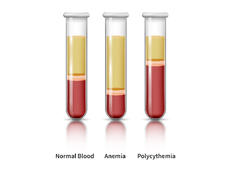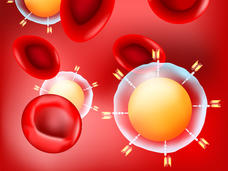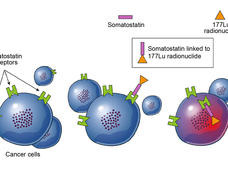March 2024 - Cancer Currents Blog
-
Rusfertide Nearly Eliminates Need for Phlebotomies to Treat Polycythemia Vera
Adding rusfertide to treatment for polycythemia vera cut phlebotomy rates from nine to less than one per year in a recent clinical trial. The finding may improve the quality of life for those who manage the blood cancer with frequent blood draws.
-
Simple Hysterectomy May Expand Treatment Options for Early-Stage Cervical Cancer
For some people with early-stage cervical cancer, a surgical procedure called a simple hysterectomy may be a safe and effective alternative to treatment with a radical hysterectomy, results from the SHAPE trial show.
-
From Awareness to Action: Putting Cancer Disparities in the Rearview Mirror
Eliminating disparities will require the efforts of people from across a broad spectrum of scientific research, according to leading experts, and must include working in concert with people and organizations in the community.
-
Stealing Strategies from Cancerous T Cells May Boost Immunotherapy
Adding a fusion of parts of two genes helped engineered T cells divide faster, kill more tumor cells, and survive longer in mice without making the T cells behave like cancer cells.
-
Nivolumab Injections Could Make Treatment Easier for More People with Cancer
In a clinical trial, an injectable form of nivolumab (Opdivo) was as effective against kidney cancer as the intravenous form of the drug. Side effects were also similar and treatment time was shorter. Injectable immunotherapies, several experts said, if found to be comparable to IV forms, can be more convenient to receive and accessible to more people.
-
First Cancer TIL Therapy Gets FDA Approval for Advanced Melanoma
In an event more than three decades in the making, FDA has approved lifileucel (Amtagvi), the first cancer treatment that uses immune cells called tumor-infiltrating lymphocytes, or TILs.
-
Lutathera Shows Promise as Part of Initial Therapy for Some Neuroendocrine Tumors
Adding Lu 177-dotate to the initial treatment of certain advanced neuroendocrine tumors nearly tripling the length of time people survive without their tumors getting worse, according to new clinical trial results.





